Our big event is called Game Changer, but Slido was the real game changer for us. We've been changing people's lives across Canada, thanks to Slido.
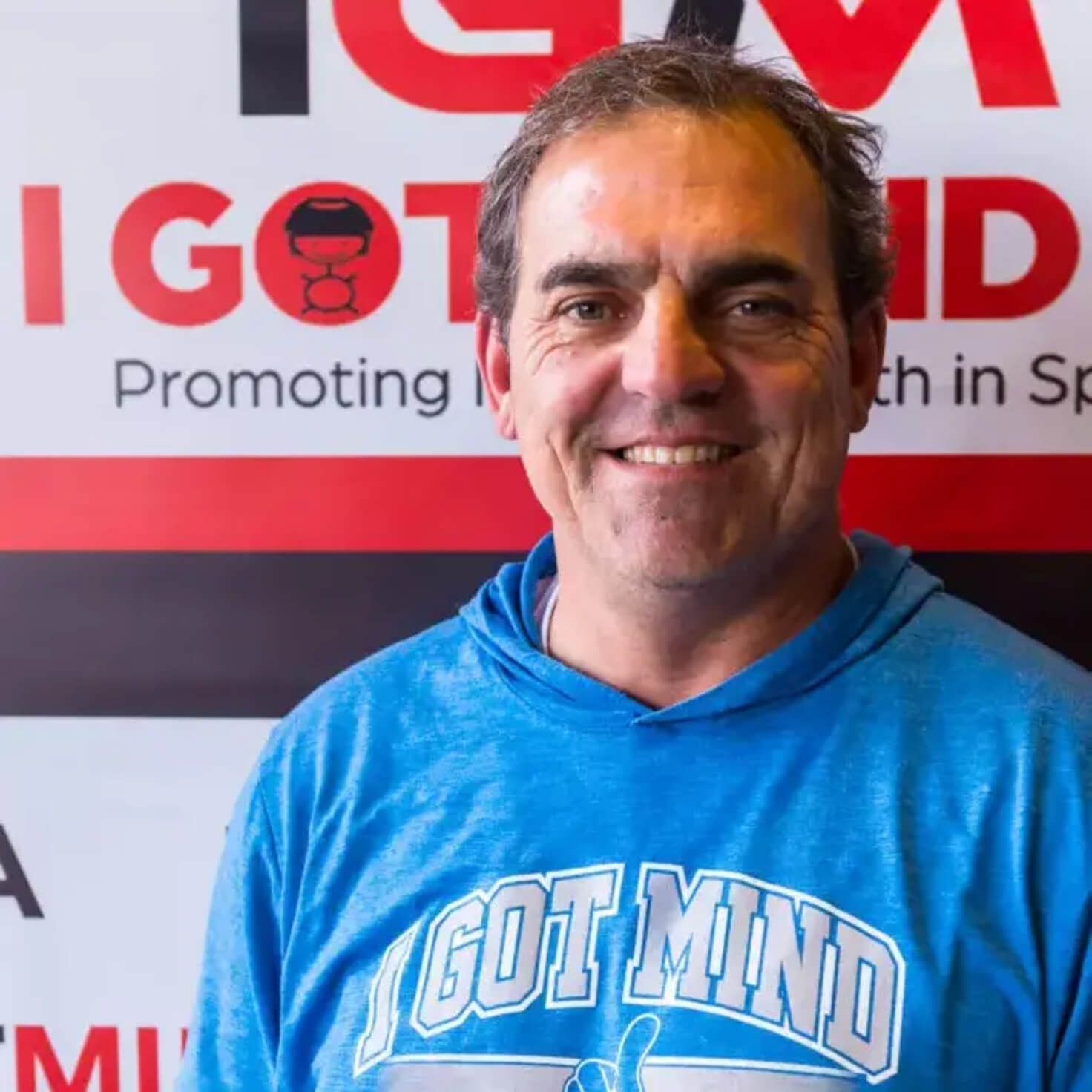
Our big event is called Game Changer, but Slido was the real game changer for us. We've been changing people's lives across Canada, thanks to Slido.

I Got Mind has been changing people’s lives across Western Canada. This award-winning company educates young athletes, their parents and coaches about coping with mental illness.
We wanted to get people to open up about what they’re dealing with and show them they're not alone,
says Bob Wilkie, the company’s founder.
But when you struggle with anxiety or depression, it’s difficult to talk about it publicly.
We wanted to empower people to share their feelings without having to raise their hands,
Bob explains. So we searched for a solution to capture all voices and show real-time results.
That’s when he found Slido. Here is Bob’s touching story.
As a former NHL player who suffered from mental health problems since a young age, Bob had a first-hand experience of how it feels when you’re struggling. When he started coaching young athletes, he soon recognized the signs of mental health problems in their behavior.
I wanted to help them. I didn’t want them to end up as I did,
shares Bob.
He decided to start a conversation about mental health. To do that, he organized a series of mental health awareness events, combining personal stories with science.
At the event, I would share how I felt, while a clinician standing next to me on the stage explained what was happening in my brain,
Bob says.
But aside from sharing his story, Bob wanted to hear about the issues people faced. We often felt that they wanted to talk about it, but it wouldn't come out. We didn’t have the trust to have these conversations in person.
To create a safe environment for people to speak up, he started using anonymous Slido polls.
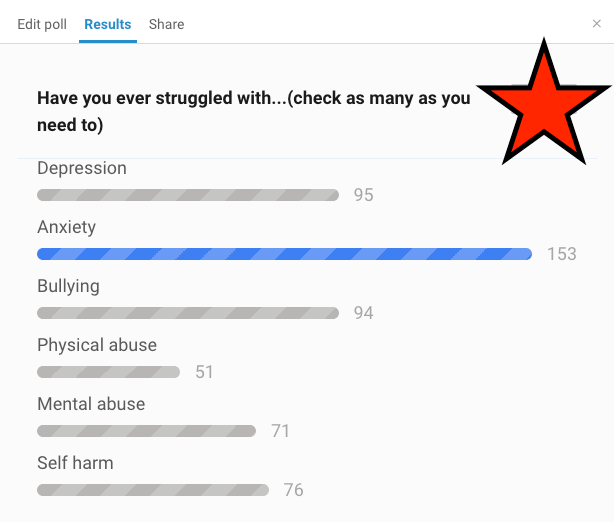
For example, to demonstrate the scale of the issues, he would ask who, in the room, had struggled with anxiety or depression. Over 80% admitted they had. It was a big eye-opener,
shared Bob.
After six months of running these mental health awareness events, Bob had collected lots of valuable information in Slido about the problems people struggled with.
Seeing all this data inspired him to take his awareness work a step further.
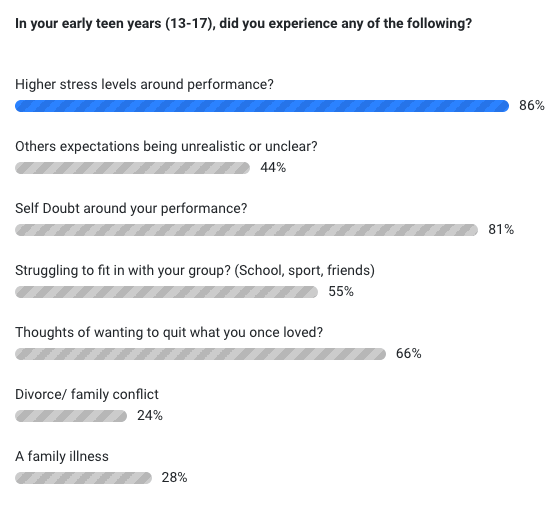
We identified recurring issues across groups, and we realized we could do more to help. So we developed tailored training courses to teach people how to cope with these issues.
These courses help athletes learn how to deal with mental illness and strengthen team culture.
Bob structures each course as a conversation. To achieve this, he uses Slido.
Bob uses a poll every 15 minutes to connect with the audience. People zone out quickly, so we use polls to keep them engaged. When we display the results, people who seemed uninterested lean in and start listening.
He opens each session with a warm-up poll to check what people remembered from the study material. For example, What’s the biggest thing you learned? (word cloud).
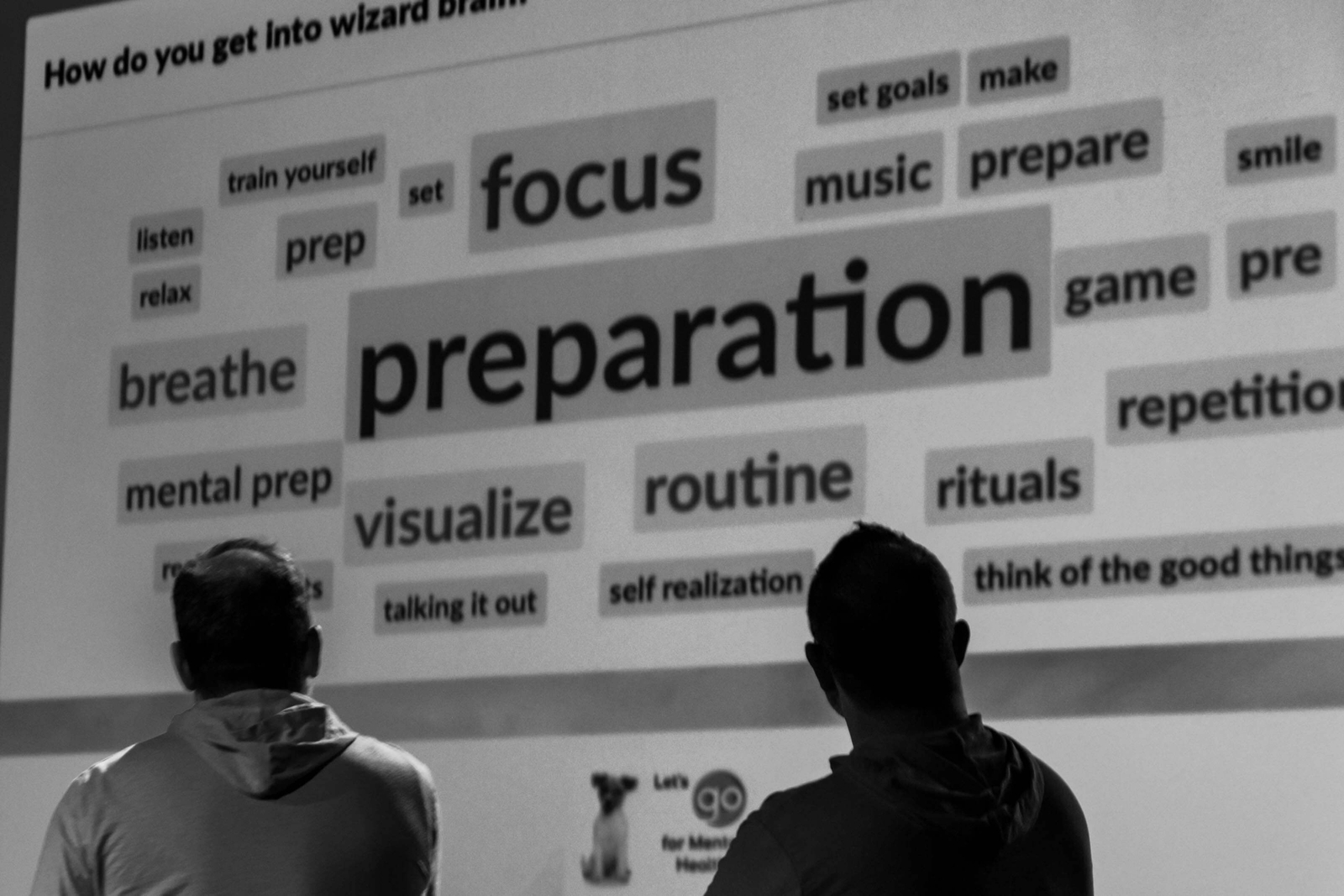
Polls also uncover hidden issues that the athletes face within the teams, and find solutions.
To identify problems athletes deal with, we use word cloud polls, e.g. What struggles do you face in the locker room? Then I comment on the results and ask them to describe what that looks and feels like, and we talk about it,
continues Bob.
It’s vital that coaches and parents are in the room to hear these conversations. They often have no idea about what’s going on. Seeing the kids’ answers changes how they handle them.
To tailor the learning to suit people’s needs, Bob uses multiple-choice polls throughout the presentation. It helps him ensure that the content is relevant and usable.
The poll answers help us direct how we teach them and what we say. That’s the power of Slido: the conversations are around what the audience wants to hear.
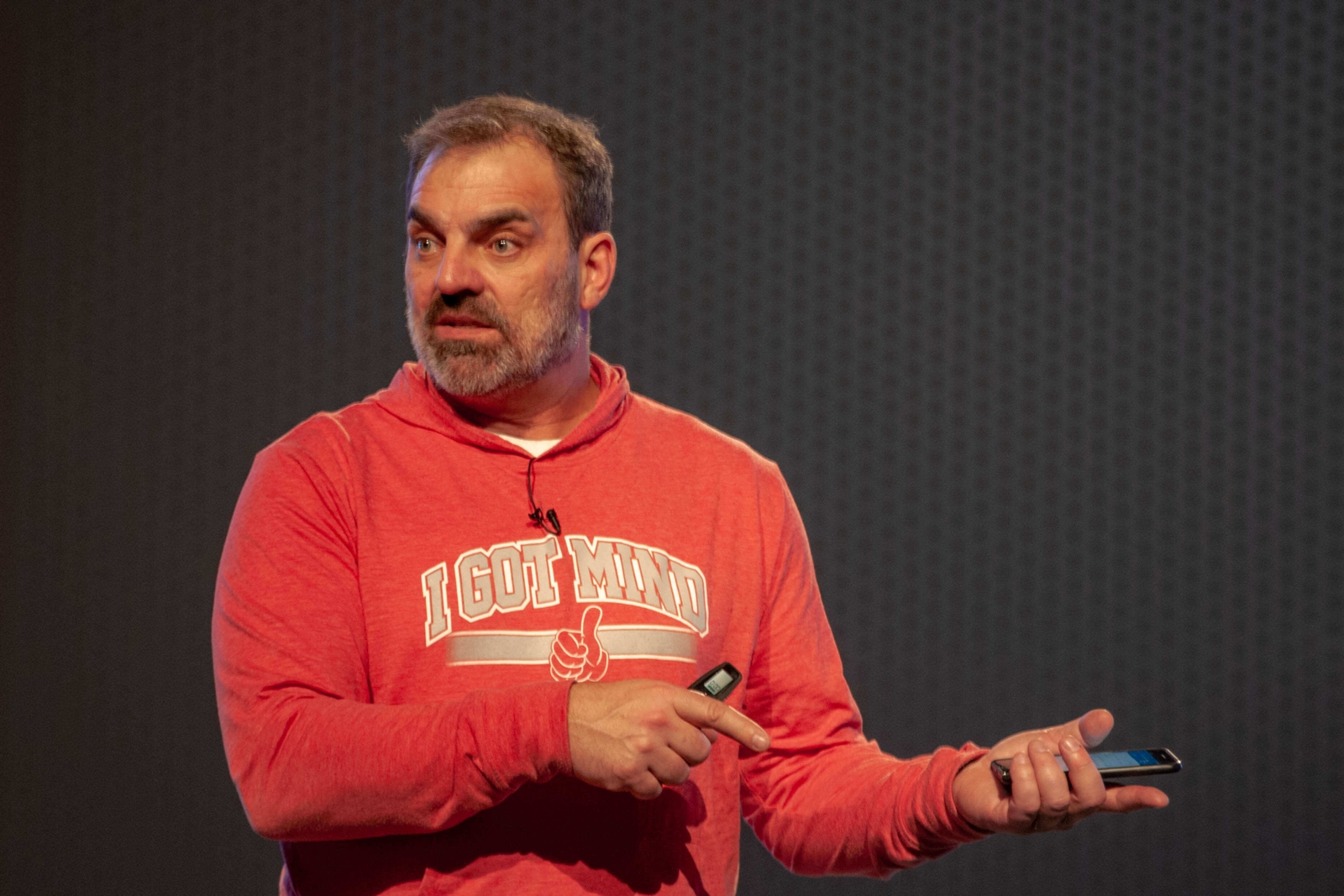
Adding in a bit of fun can do magic to enhance learning. So, once he has presented all the information, Bob runs a quick quiz to recap what people have learned.
Quizzes are an engaging way to learn. We have this competition to see who learned the most, and how quickly. The winner gets a prize, usually a gift voucher,
smiles Bob.
At the end of the training, Bob collects feedback in a quick rating poll, e.g. How did you like the session tonight? (1= poor, 5= loved it).
The data exports also help him show value to his clients. Seeing positive results gives them a reason for taking our courses again.
By using anonymous polls, Bob can build trust with people who attend his courses. This allows him to have in-person conversations about mental illness, which was his goal from the start.
Slido has been such a powerful tool for us. By the end of the course, we don’t even have to use Slido; people actually start talking. We wouldn't have the impact that we're having in society here in Western Canada without Slido.